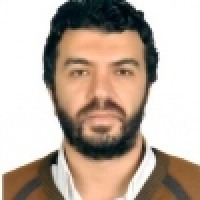Research Article
Image Presentation
Aim & Scope
Journal of Sport for All and Recreation is an international journal aiming to contribute to the world of science by publishing academic and scientific studies in an ethical, qualified and original framework. The journal is a peer-reviewed journal and is published after at least two blind peer reviews. Turkish and English publications are accepted in our journal. The manuscripts sent by the authors submitted to our journal should not be published in any other journals before. Authors are deemed to have transferred their copyrights when they submit their works. Studies are published after receiving plagiarism program reports.
Journal of Sport for All and Recreation accepts articles on sport sciences, sport education, recreation and sport tourism. The journal is published twices a year in March, June, September and December electronically.
Author Guidelines
Ethical Principles and Publication Policy
Price Policy
JSAR FEE POLICY
The Journal of Sports and Recreation for All charges 4000 TL to the authors for an article application fee - regardless of acceptance/rejection conditions.
In accordance with the decision taken at the General Assembly of the Council of Higher Education dated 07.03.2019, the fee is collected in cash.
The text of the decision taken at the general assembly of ÜAK dated 07.03.2019 is as follows;
The following journals can be used in the associate professorship application requirements (declaration);
• Journals that charge a fee when submitting an article - regardless of acceptance/rejection conditions.
• Journals that charge a fee to make the relevant article open access even though they operate on a subscription basis
• Journals that do not charge any fee to authors during the article publishing process,
Authors must deposit the requested service fee to the account below during the article submission phase and send the receipt along with the article and author information to jsareditor@gmail.com.
The article processing fee for all articles uploaded as of 2024 has been updated to 4000 TL.
IBAN: TR80 0001 5001 5800 7339 2637 18 (Vakıfbank)
Akan Bayrakdar
Indexes
Journal Boards
Publisher
Editor-in-Chief

Editors



Publishing (Editorial) Board









 Web
Web
He began his academic career in 2014 as a lecturer at Nişantaşı University and currently serves as an Associate Professor in the Sports Management Department of the Faculty of Sports Sciences at Bartın University. Özman, who conducts research in the fields of sports management, sports marketing, entrepreneurship, and volunteerism, has served as a project manager and researcher in various projects supported by the European Union Erasmus+ Sport Programmes, the Development Agency, and the Ministry of Youth and Sports. He has published numerous scientific articles and book chapters.
In addition to his academic work, Özman has volunteered for sports, serving in prestigious international sports organisations such as the 2010 FIBA World Championship, the 2013 FIFA U20 World Cup, and the 2019 UEFA Super Cup. He has also served as a volunteer camp leader in youth camps organised by the Ministry of Youth and Sports and has taken on active roles in projects related to the social impact of sports.







Dan Iulian ALEXE is an associate professor, Ph.D. at the "Vasile Alecsandri" University of Bacau (Romania); he holds the position of Dean of the Faculty of Movement, Sports and Health Sciences in Bacau (from 2020) and earned his PhD in Physical Education and Sport in 2009. His research is focused on physical education in the pre-university, university, and private environment, as well as on increasing human performance in sports. To date, he has published 160 articles (70 are indexed in Web of Science) and 15 specialized books and university textbooks. He has h-index value 10 on Web of Science, his articles accumulating over 600 citations, of which 300 citations are only of articles indexed by Clarivate. He reviewed more than 170 articles for journals indexed in Web of Science/Scopus. He is also an athletics coach.


I grew in a sports environment. I am currently a senior researcher at the University of Extremadura Spain. I have won ranked 1st place in physical fitness in Iran and now I work in several professional clubs as a sports scientist. My interests in researches: Sports Nutrition and supplement; growth youth and maturation; strength and conditioning; sports performance; soccer training; injury prevention; training load, quality of life; reliability, and validity.

Editorial Board







Proofreading Editors


Yaşar İsmail Gülünay, Karabük Üniversitesi Hasan Doğan Spor Bilimleri Fakültesi’nde Dr. Öğr. Üyesi olarak görev yapmaktadır. 2021’de Gazi Üniversitesi’nden Beden Eğitimi ve Spor Eğitimi alanında doktora derecesini almıştır. Araştırmaları, çoklu zekâ profilleri ile fiziksel aktivite ve spor katılımının öğrenme ve üstbilişsel çıktılarla ilişkisini incelemektedir. Zekâ türleri ile yabancı dil başarısı ve spor bilimleri öğrencilerinin üstbilişsel farkındalığı, 21. yüyzyıl becerileri gibi konularda yayımlanmış çalışmaları bulunmaktadır.
Mizanpaj

Scientific Committee

Articles published by Journal Sports for All and Recreation is licensed under the Creative Commons Attribution-NonCommercial-NoDerivatives 4.0 International (CC BY-NC-ND 4.0) License.











